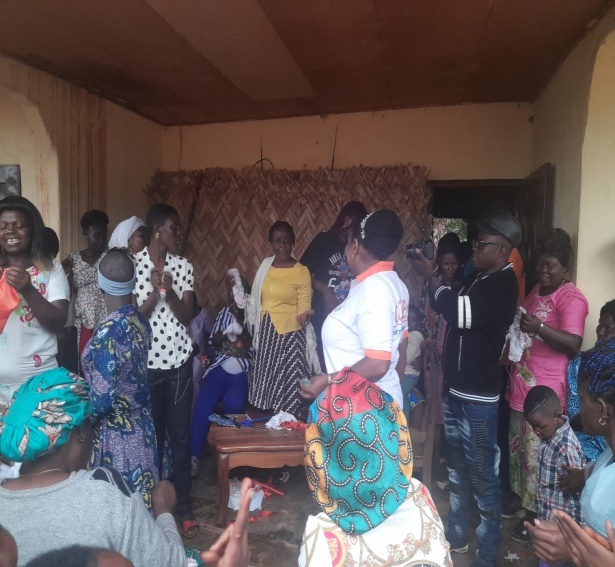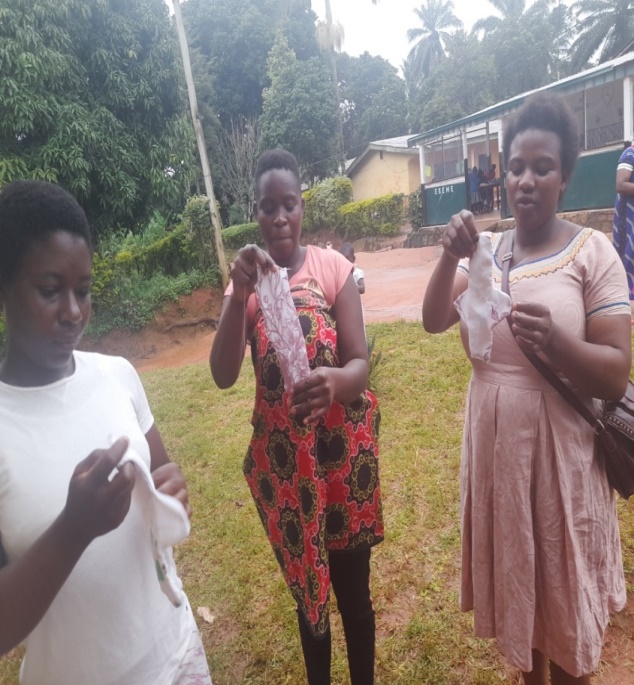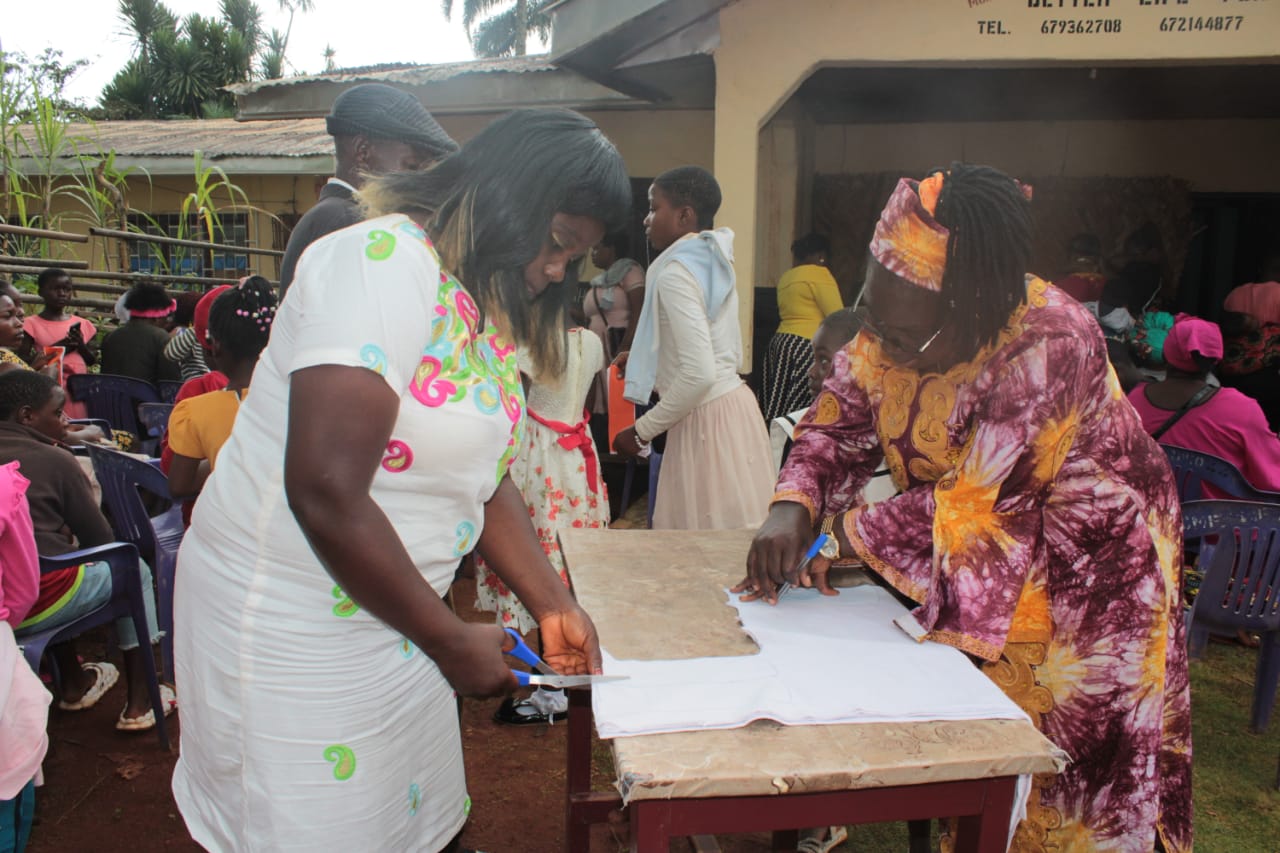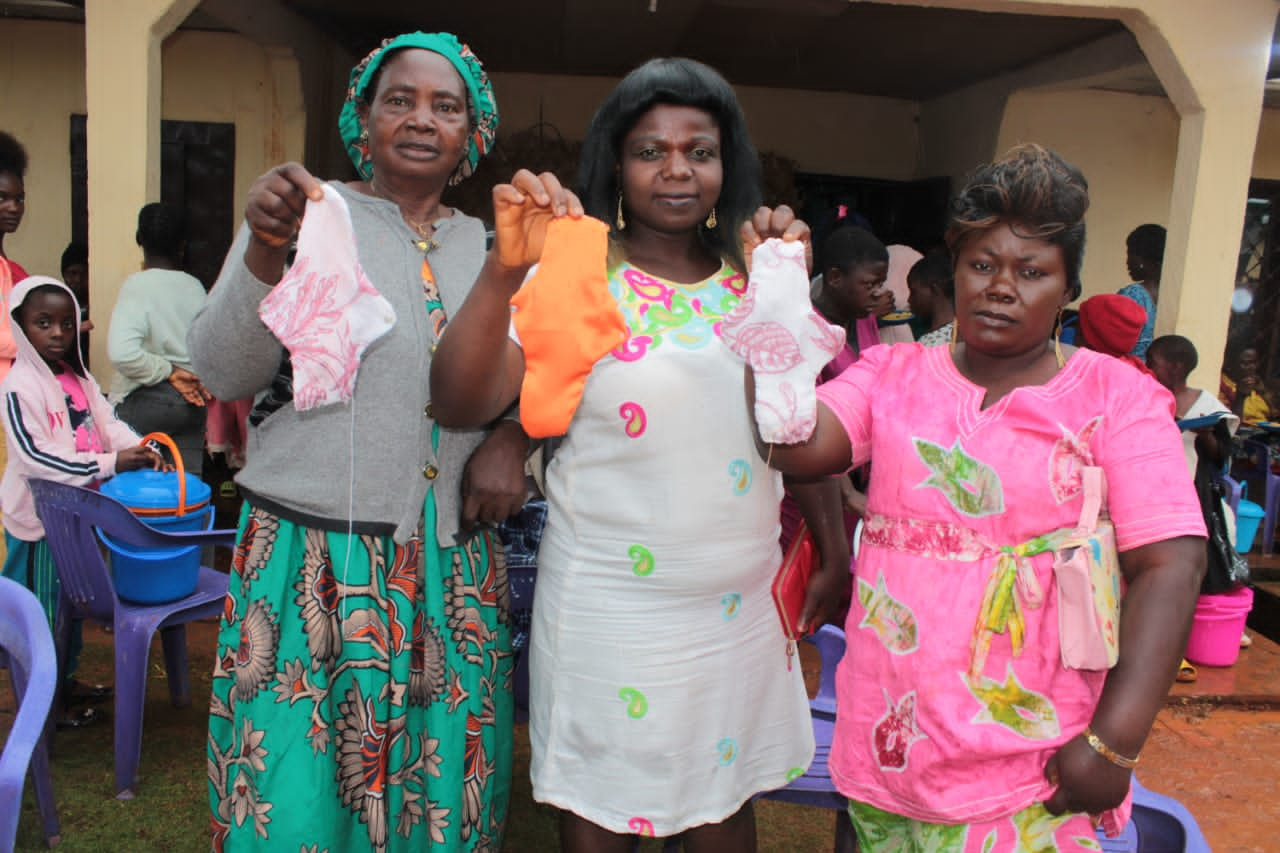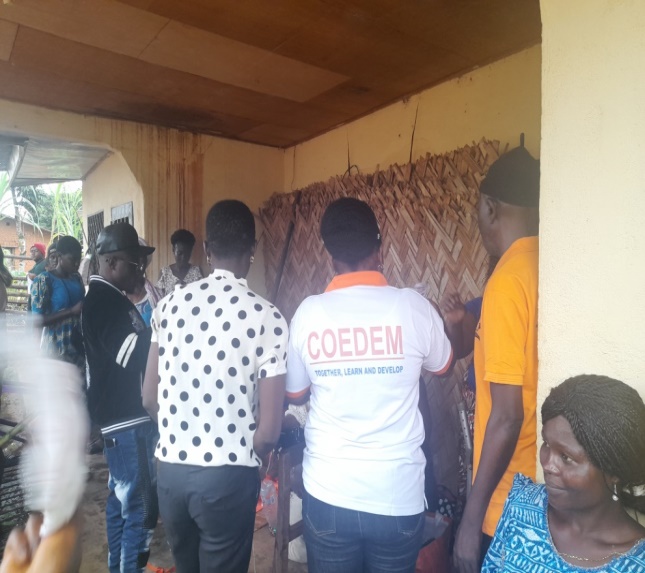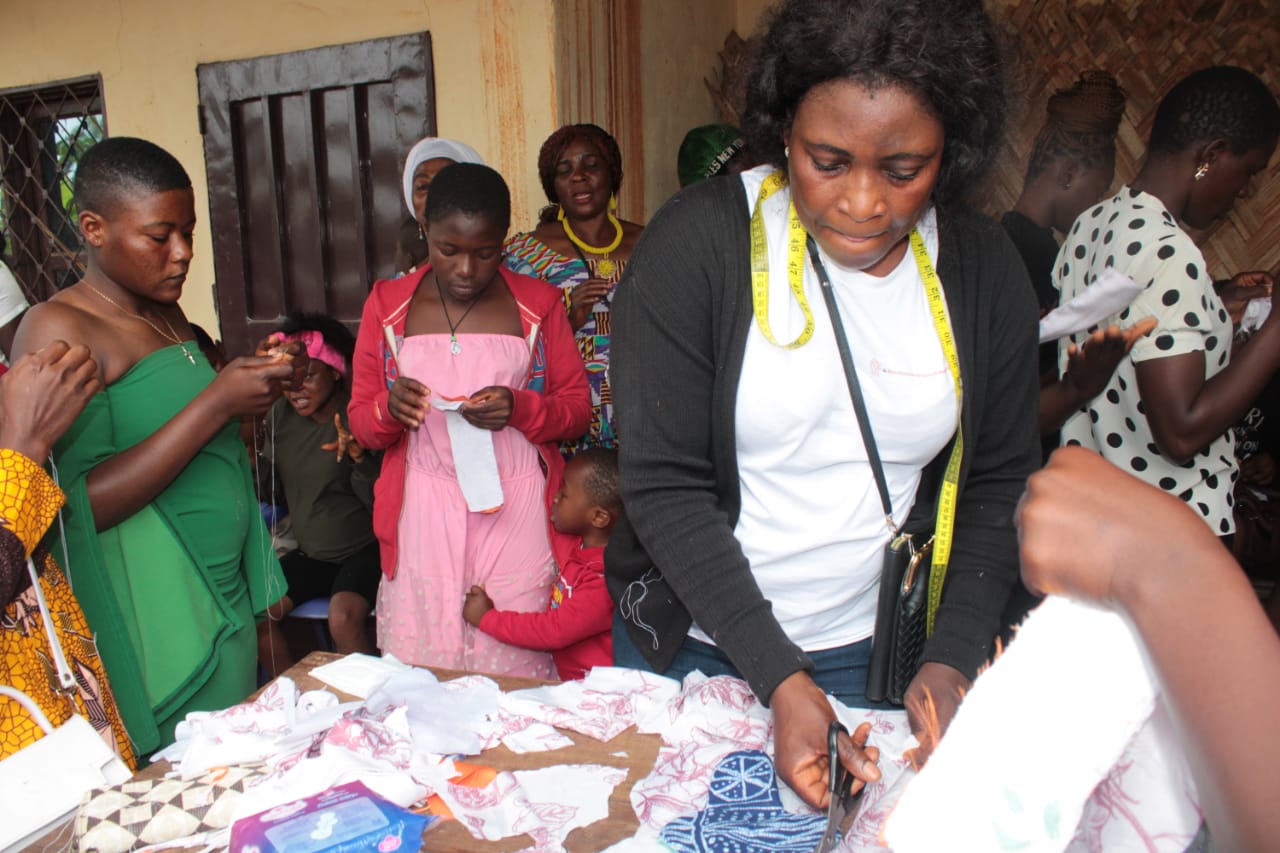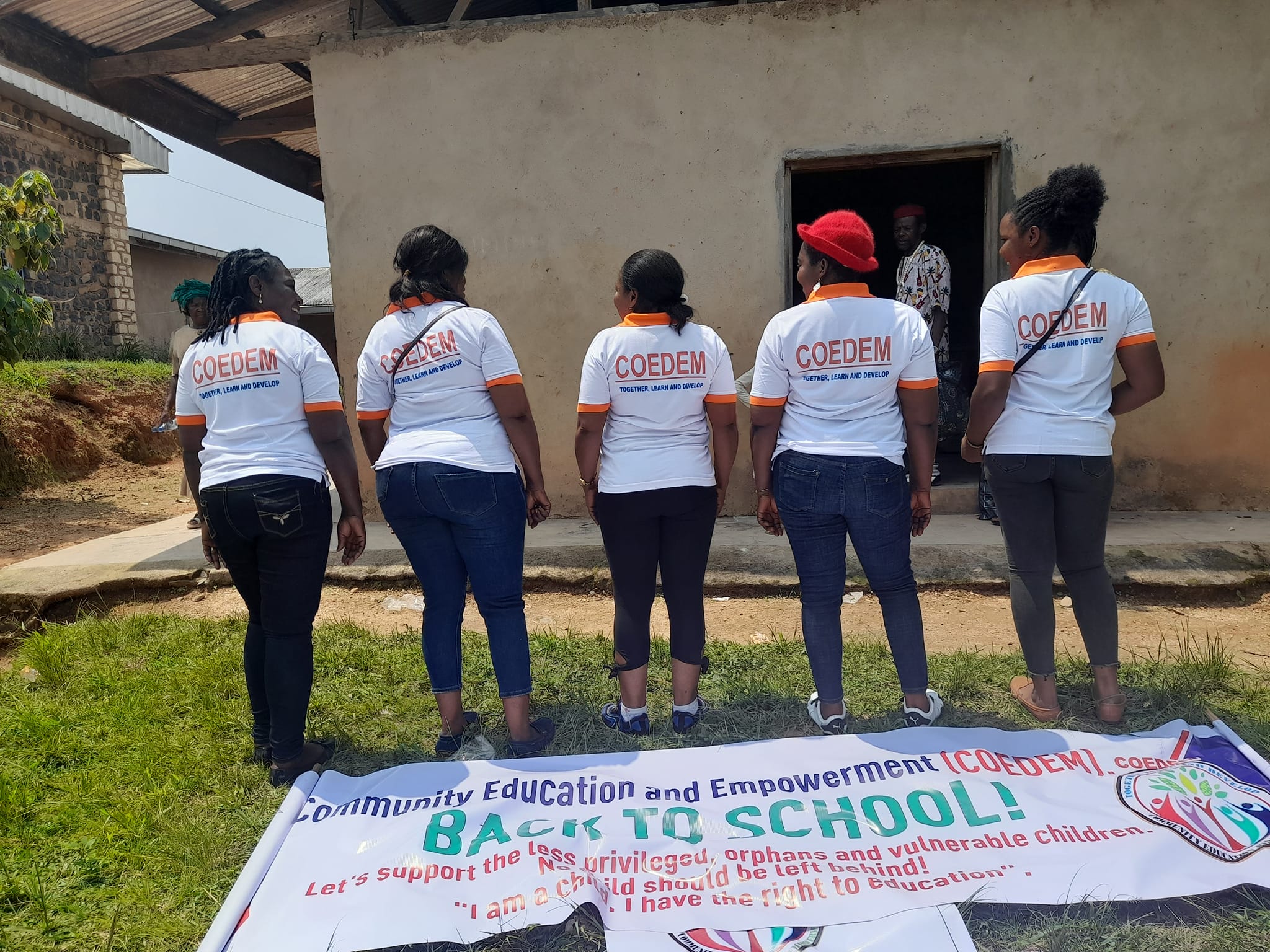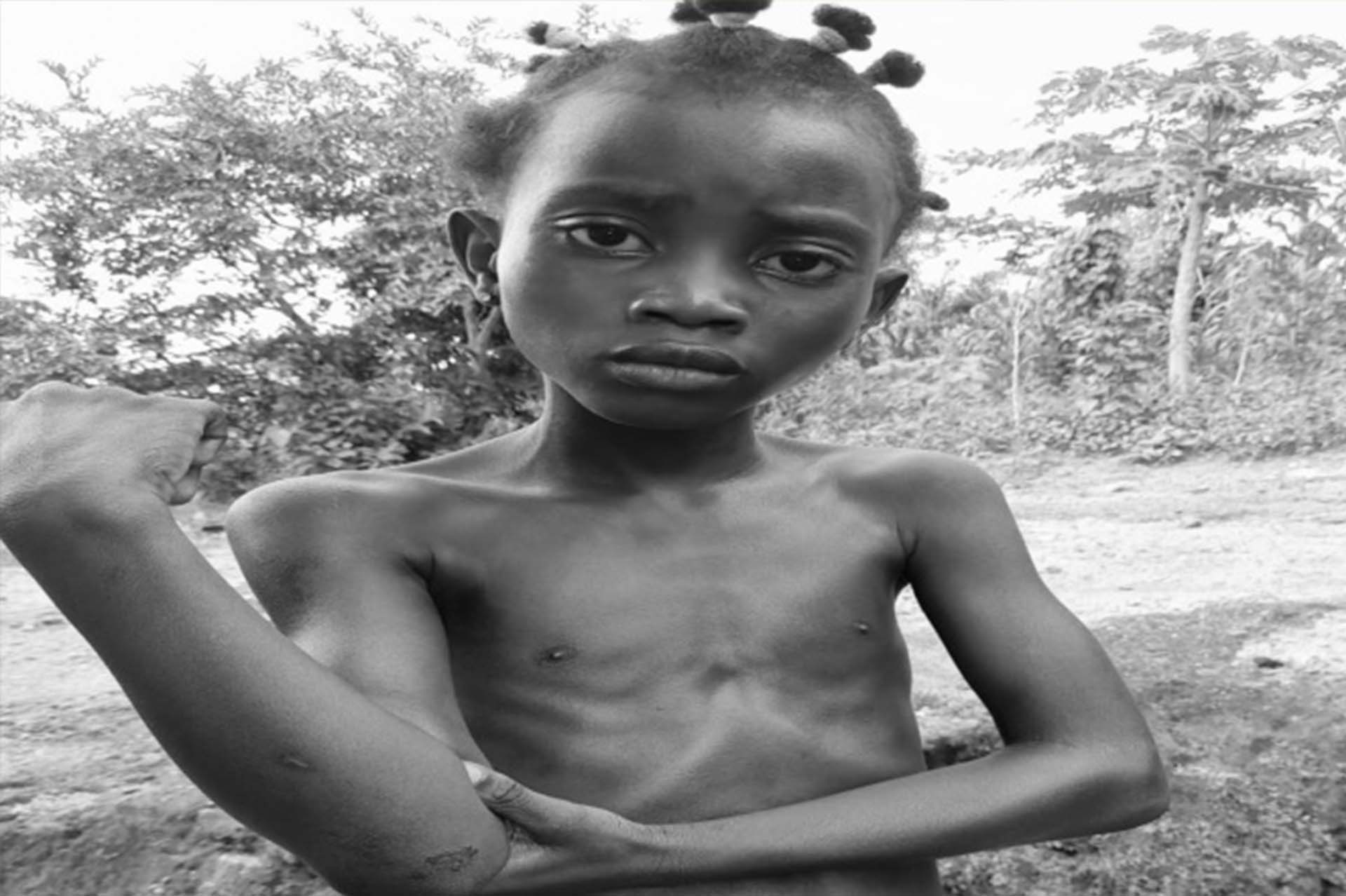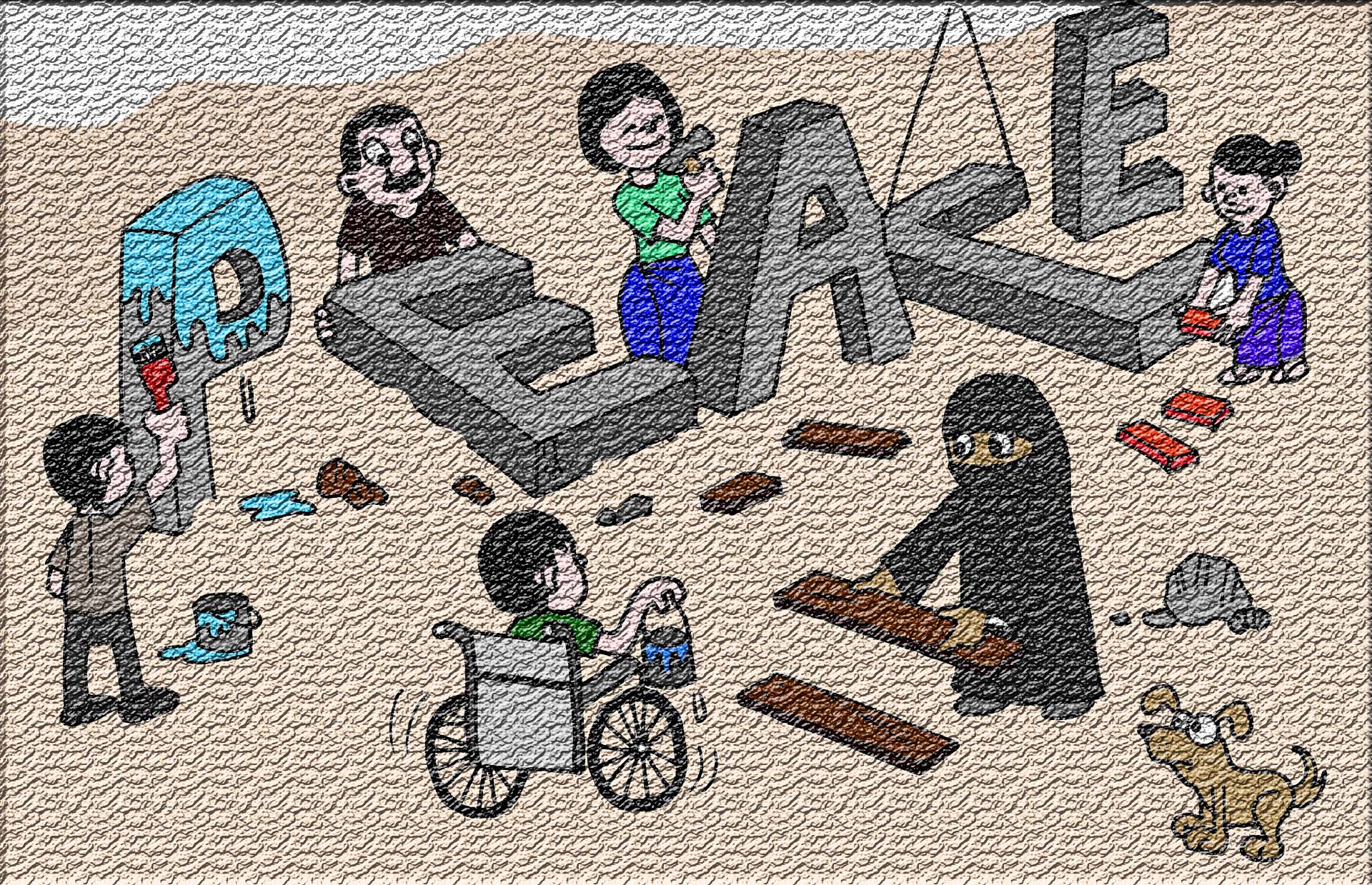A report on the production of handmade sanitary unusable pads with adolescent girls and young women in Bafut subdivision on the 17th of October 2019.
Due to the Anglophone crisis that has brought a lot of misery, hardship discontent and trauma especially on adolescent girls and young women (AGYW), it has been so difficult for this vulnerable group of persons to manage their menstrual hygiene properly. Some AGYW could be seen moving around the community with dresses soiled by their periods, some with unbearable odours when they pass by and others who would withdraw from their normal day to day activities because they cannot afford for a pack of sanitary pads during menstruation. Worst of all, some of these teenage girls and young mothers have quiet little or no knowledge about their menstrual cycles since most of them at home have not been able to continue with education. When we randomly interviewed some of the girls on how they manage their monthly periods, some told us, they use pieces of clothes, plantain leaves, papers, grass and so on during menstruation.
It is on this backdrop that the attention of Community Education and Empowerment was drawn to come down to the field to educate this active group on their reproductive rights and also train them on the production of handmade reusable sanitary pad using some cheap and rudimentary material in order to solve their menstrual hygiene problems.
Participants are expected at the end of this of this one day project to understand their individual monthly cycles and be able to produce locally made sanitary pads for themselves using , needles threads and various resistant fabrics.
Four COEDEM members went down the field to carry out this activity in partnership with LEM D Foundation. The activity started with the church with the sensitization of parents on menstrual hygiene followed by a workshop with 83 participants far more than expected at the LEM D Foundation premises. Those who attended the training were: 53 teenage girls, 24 young women and 9 older women who were so ambitious to learn.
The training was done in 3 sessions as follows;
First presentation on menstrual reproduction where participants were strengthened on the notion of menstrual cycle, what happens to their bodies and when to expect their monthly periods. They were also educated on proper menstrual hygiene.
The second presentation was the practical and participative production of the handmade reusable sanitary pads. Participants were given materials to work alongside the close supervision of facilitators. This was an interesting phase as everyone was physically busy at work. The stage ended with many producing beautiful pads.
The last stage was the distribution of gifts made of buckets and soap to help them in their sanitary us. The two organizations also provided launch for all the participants.
In the course of implementing this project, we encountered a lot of challenges. Firstly, we meet a crowd double what we expected, though we managed and all had materials for the production of these sanitary pads, the buckets were short so some of them only went home with soap. Again, the venue originally prepared for 40 participants was small to accommodate 83 of them. Time also was a barrier because to fully achieve effective outcomes, we could have carried out the activity in two days. Limited funds for the project. If we had funding we could have even trained the girls to use sewing machines in the production of these locally manufactured sanitary pads.
Testimonial from a father in the community;
“thank you so very much Ma Bea and your team for handling this topic on menstrual hygiene in this village. The issue had been more than we men could handle. Thank you once more for educating our women and children.”
Conclusively, it was a successful venture as participants and the whole community of Niko and beyond appreciated the efforts of COEDEM for the great contributions in the wellbeing of the Bafut people.
